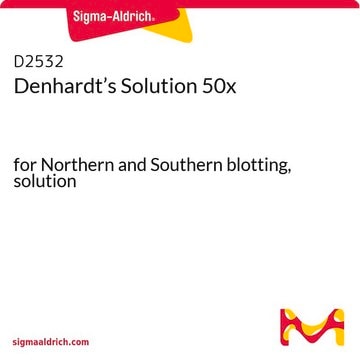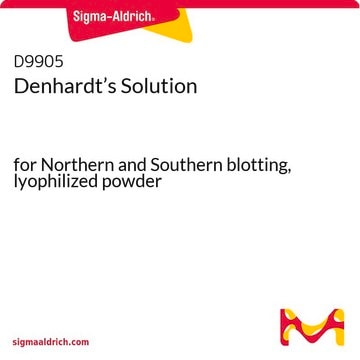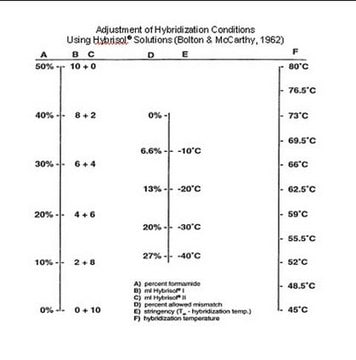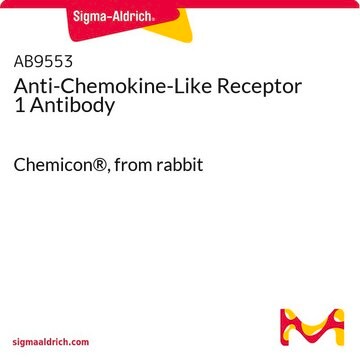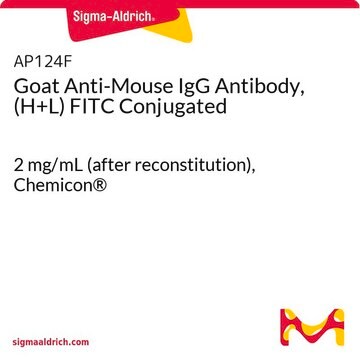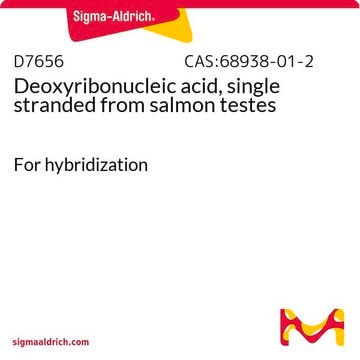30915
Denhardt′s solution
BioReagent, for molecular biology, lyophilized powder
Sign Into View Organizational & Contract Pricing
All Photos(1)
About This Item
Recommended Products
grade
for molecular biology
product line
BioReagent
form
lyophilized powder
impurities
DNases, none detected
RNases, none detected
phosphatases, none detected
proteases, none detected
suitability
suitable for nucleic acid hybridization
storage temp.
2-8°C
General description
Denhardt′s solution is a mixture of high-molecular weight polymers that act as blocking agents. It is used to reduce non-specific binding of detection reagents to the Northern and Southern Blot membranes. This powder can be used to make a 50x concentrate that can be diluted to any concentration for use in a variety of pre-hybridization and hybridization buffers.
Application
Suitable to block non-specific binding sites in western, northern and Southern blot membranes
Components
Each vial of Denhardt′s powder contains 50 mG Bovine Serum Albumin (BSA), 50 mG Ficoll, and 50 mG Polyvinylpyrrolidone (PVP).
Preparation Note
To make a 50x concentrate, dissolve entire contents of vial in 5 mL molecular biology grade water. Store at −20°C for up to two years.
related product
Product No.
Description
Pricing
Storage Class Code
11 - Combustible Solids
WGK
WGK 3
Flash Point(F)
Not applicable
Flash Point(C)
Not applicable
Personal Protective Equipment
dust mask type N95 (US), Eyeshields, Gloves
Certificates of Analysis (COA)
Search for Certificates of Analysis (COA) by entering the products Lot/Batch Number. Lot and Batch Numbers can be found on a product’s label following the words ‘Lot’ or ‘Batch’.
Already Own This Product?
Find documentation for the products that you have recently purchased in the Document Library.
Customers Also Viewed
J. Sambrook et al.
Molecular Cloning: A Laboratory Manual (1989)
Flavien Pillet et al.
Nucleic acids research, 39(17), 7477-7486 (2011-06-10)
The segregation of plasmid F of Escherichia coli is highly reliable. The Sop partition locus, responsible for this stable maintenance, is composed of two genes, sopA and sopB and a centromere, sopC, consisting of 12 direct repeats of 43 bp. Each
Ren Li et al.
Nature communications, 11(1), 5844-5844 (2020-11-19)
Fruit firmness is a target trait in tomato breeding because it facilitates transportation and storage. However, it is also a complex trait and uncovering the molecular genetic mechanisms controlling fruit firmness has proven challenging. Here, we report the map-based cloning
Our team of scientists has experience in all areas of research including Life Science, Material Science, Chemical Synthesis, Chromatography, Analytical and many others.
Contact Technical Service
